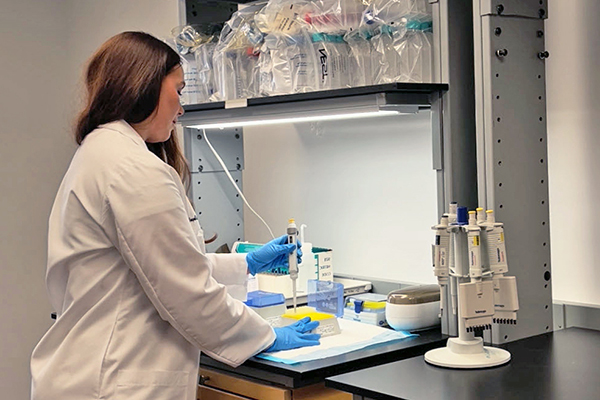The Biobehavioral Core fosters collaboration among clinical and basic science researchers to advance understanding of the biology behind behavioral disorders. It maintains high-quality tissue biobank in combination with extensive clinical and sociodemographic data to drive evidence-based research. Researchers use state-of-the-art genomic approaches to investigate how changes in DNA sequence and epigenetic modifications cause changes in behavior, and how this may lead to development of behavioral disorders.

Goals
- Advance understanding of behavioral disorders: Enhance the scientific community’s understanding of the biological basis of behavioral disorders by fostering collaborative research that integrates clinical observations with genetic, epigenetic, and molecular biology findings.
- Facilitate translational research: Bridge the gap between basic scientific discoveries and clinical applications to accelerate the development of novel approaches to diagnosis, management, and prevention of behavioral disorders.
- Promote research innovation and education: Serve as a hub for innovation in research methodologies and as a training ground for researchers and students in the field of biobehavioral health that can promote growth of multidisciplinary teams.
Activities
- Facilitate joint projects between laboratory scientists and clinical researchers to explore the genetic and epigenetic underpinnings of behavioral outcomes, leveraging state-of-the-art genomic technologies, paired with robust clinical, environmental, and observational data for holistic assessments.
- Establish and maintain a biobank of high-quality biological samples (blood, saliva) coupled with detailed clinical and sociodemographic data from patients with behavioral disorders.
- Provide services related to epigenetics of behavioral health to support multidisciplinary research teams including:
- Cellular and molecular analysis of biological samples: Offer services for the processing and analysis of biological samples to provide researchers with detailed insights into cellular and molecular mechanisms.
- Advanced imaging and genetic modification analysis: Provide advanced imaging services and analysis of genetic modifications, such as DNA methylation, to support studies on the epigenetic mechanisms affecting gene expression related to behavior. This enables high-resolution visualization and analysis of these effects across different tissue types, advancing our understanding of epigenetic influences on behavior.
- Develop and implement advanced data integration and analysis platforms to correlate clinical findings with molecular and genetic data, identifying key biological pathways involved in behavioral disorders.
- Organize workshops, seminars, and symposia on the latest research findings, techniques, and ethical considerations in biobehavioral health research, fostering a community of learning and collaboration.
Biobehavioral Sciences Laboratory
Housed within Cizik School of Nursing at UTHealth Houston, the Biobehavioral Sciences Laboratory provides resources and services to support high quality research including biobanking, sample preparation, and the capability of performing a wide range of tests for research and diagnosis.
Review the full list of services provided and submit lab requests.

